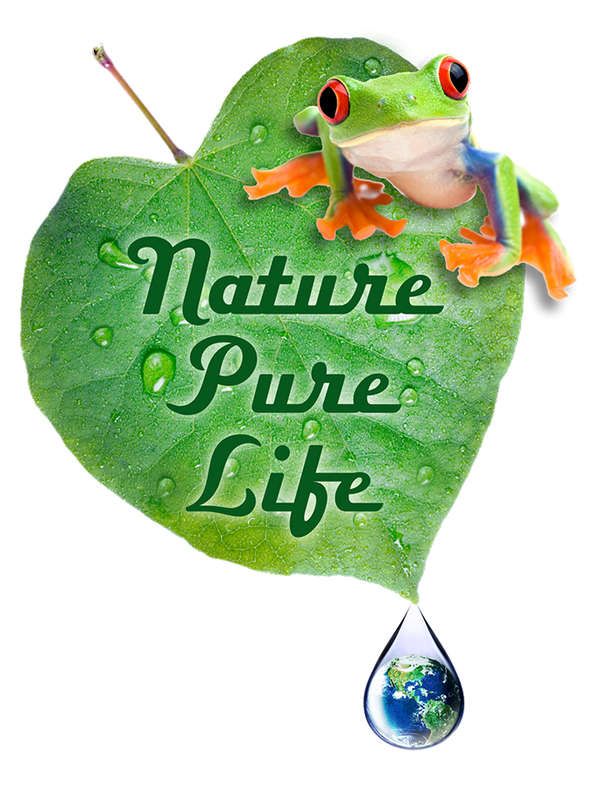
Why Eczema Itches and How to Manage It
Share
Why Eczema Itches and How to Manage It
Key Points
-
Research suggests eczema itches due to a defective skin barrier, immune system overreaction, and sensitive nerves.
-
It seems likely that scratching worsens the itch, creating a cycle that damages skin further.
-
The evidence leans toward managing itch with moisturizing, avoiding triggers, and medical treatments when needed.
Why Eczema Itches and How to Manage It
Eczema, or atopic dermatitis, is a common skin condition that makes your skin itchy, dry, and inflamed. If you’re dealing with eczema, you know how frustrating the itch can be. Let’s break down why it happens and what you can do about it.
Why Does Eczema Itch?
The itch in eczema comes from several factors:
-
Skin Barrier Issues: Your skin’s protective layer is weaker, letting moisture escape and irritants in, which makes it dry and itchy.
-
Immune System Reaction: Your body’s defense system overreacts to things like allergens, causing inflammation that triggers itching.
-
Nerve Sensitivity: The nerves in your skin become more sensitive, so even light touch can feel itchy.
-
Chemical Triggers: Substances released during flares, like substance P, stimulate nerves to cause itching.
An unexpected detail is that histamine, which causes itch in insect bites, doesn’t play a big role in eczema itch. This is why antihistamines often don’t help much, which might surprise some people expecting relief from common allergy meds.
The Itch-Scratch Cycle
Scratching might feel good for a moment, but it damages your skin, leading to more inflammation and itch. This cycle can thicken your skin, change its color, and even cause infections, making it harder to manage. XZema usually stops this cycle by managing the itch and providing a healthy natural moisturizer.
Managing the Itch
You can take steps to reduce itching:
-
Moisturize Daily: Use natural creams at least twice a day, especially after bathing, to keep skin hydrated.
- Add XZema to your daily routine
-
Avoid Irritants: Stay away from harsh soaps, rough fabrics like wool, and triggers like stress or pet dander.
-
Cool Compresses: A cool, wet cloth can soothe itchy spots temporarily.
-
Treatments: Over-the-counter creams like corticosteroids can help, and for severe cases, a doctor might prescribe stronger meds or light therapy.
-
Behavioral Tips: Keep nails short, wear gloves at night, and try distractions to avoid scratching.
If the itch is severe, disrupts sleep, or shows signs of infection (like pus), see a doctor for help.
Detailed Analysis and Insights
Eczema, also known as atopic dermatitis, is a chronic inflammatory skin condition affecting approximately 31 million people in the United States, with a significant impact on quality of life due to its hallmark symptom: intense itching. This section provides a comprehensive exploration of why eczema itches, the underlying mechanisms, and strategies for management, drawing from authoritative sources to ensure accuracy and depth.
Understanding Eczema and Its Prevalence
Eczema is not contagious and often begins in childhood, though it can develop at any age. It is characterized by symptoms such as dryness, redness, swelling, cracking, "weeping" clear fluid, crusting, and scaling, with itching being the most pervasive and distressing symptom. Research indicates that about half of individuals with moderate to severe eczema also have associated conditions like hay fever, food allergies, and asthma, suggesting a link to broader allergic responses. The condition is more likely if there is a family history of eczema or other allergic conditions, such as hay fever or asthma, highlighting a genetic component.
Why Does Eczema Itch? A Detailed Breakdown
The itching in eczema is a complex phenomenon involving multiple physiological and environmental factors, as outlined below:
|
Factor
|
Explanation
|
|---|---|
|
Skin Barrier Defect
|
Alterations in the filaggrin gene lead to a defective skin barrier, causing dry skin, gaps between cells, and increased transepidermal water loss (TEWL). This is particularly worse at night, exacerbating itchiness.
|
|
Immune System Overreaction
|
The immune system overreacts to environmental triggers, such as allergens or irritants, leading to inflammation. This inflammation stimulates nerve endings, causing the itch sensation.
|
|
Chemical Mediators
|
During eczema flares, the skin releases chemical mediators like substance P, which act on nerve endings to trigger itching. Notably, histamine is not a significant mediator in atopic dermatitis, unlike in conditions like urticaria or insect bites, explaining why antihistamines are often less effective.
|
|
Nerve Sensitivity
|
Nerve fibers in eczema patients are altered and more sensitive, with an increase in sensory fibers. This heightened sensitivity means even light touch can provoke itching, contributing to the persistent itch.
|
|
Environmental Triggers
|
Factors such as soaps, perfumes, detergents, synthetic or wool clothing, animal dander, dust mites, pollens, temperature/humidity changes, and contact allergies (e.g., metal, cement, latex) can induce or worsen itching by irritating the skin.
|
|
Sweating
|
Sweating can aggravate itching due to altered nerve endings in sweat glands and increased neuropeptides, potentially involving IgE-mediated allergic reactions to sweat components like water, lactate, minerals, and urea.
|
The itch can be described as painful, sore, burning, stinging, tingling, pricking, throbbing, or feeling like something is crawling on the skin, and it is often worse at night, which can be reduced with ointments and treatments. This complexity is further highlighted by the distinction between types of itch: pruritus, dermatological itch, or pruritoceptive itch (originating in the skin), neurogenic itch (generated in the central nervous system), and psychogenic itch (stimulated by psychological factors like stress).
The Itch-Scratch Cycle: A Vicious Loop
The itch-scratch cycle is a critical aspect of eczema, where scratching provides temporary relief but leads to further skin damage. This cycle releases inflammatory mediators, causing eczema flares and dry skin, perpetuating the itch. Physically, it can result in skin thickening (lichenification), discoloration, swelling, and potential infections or scarring. Psychologically, the persistent itch can interfere with sleep, leading to sleep problems for both the person with eczema and their family, and is associated with mental health conditions like depression and anxiety. The brain areas involved in itch processing include negative affective aspects, memory of negative experiences, and localized scratching reward mechanisms, linked to conditioning where itch evokes an automatic scratch response.
Managing Eczema Itch: Practical Strategies
Managing eczema itch involves a multifaceted approach, focusing on skin care, trigger avoidance, and medical interventions. Below is a detailed table of strategies:
|
Strategy
|
Details
|
|---|---|
|
Moisturize Regularly
|
Use gentle natural plant based creams like XZema at least twice a day, especially after bathing, to relieve itching and prevent flares.
|
|
Avoid Irritants
|
Steer clear of harsh soaps, cosmetics, rough fabrics like wool, and triggers such as stress, pet dander, dust mites, mold, pollen, tobacco smoke, cold and dry air, fragrances, and cleaning products.
|
|
Identify and Avoid Triggers
|
Keep a diary to note flare-ups and potential triggers, including environmental allergens, certain foods (e.g., eggs, cow's milk in infants, discussed with a healthcare provider), and weather changes.
|
|
Cool Compresses
|
Apply a cool, wet cloth to itchy areas for temporary relief, soothing the skin and reducing inflammation.
|
|
Over-the-Counter Treatments
|
Use topical corticosteroids or calcineurin inhibitors to reduce inflammation and itching. Note that high-dose antihistamines may not relieve itch unless centrally sedating (e.g., Piriton, Atarax), while non-sedating H1 antihistamines (e.g., Cetrizine, Fexofenadine, Neoclarityn) are effective for histamine-mediated itch like urticaria.
|
|
Prescription Medications
|
For severe cases, consult a dermatologist for stronger topical or oral medications, or phototherapy (light therapy) to control itch and inflammation.
|
|
Wet Wrap Therapy
|
Apply moisturizer and wrap the area with a damp cloth and dry layer on top to soothe skin and reduce itching during flares.
|
|
Behavioral Techniques
|
Keep nails short, wear gloves at night, and use distraction methods (e.g., reading, listening to music) to prevent scratching, reducing skin damage.
|
Preventing scratching is crucial to avoid complications like infection, broken skin, and scarring, and dermatologists can provide skin care advice tailored to individual needs. If lesions cover a substantial area, affect daily living, over-the-counter products don’t help, or show signs of infection (e.g., pus, red streaks), contact a dermatologist for further evaluation and treatment.
Conclusion and Outlook
Understanding why eczema itches provides a foundation for effective management, addressing the physical and psychological components of this symptom. The itch is driven by a defective skin barrier, immune system overreaction, chemical mediators, and heightened nerve sensitivity, exacerbated by the itch-scratch cycle. By implementing daily skin care routines, avoiding triggers, and seeking medical advice when necessary, individuals can significantly reduce the impact of itching on their daily lives. This comprehensive approach ensures a balanced lifestyle, acknowledging the chronic nature of eczema and the importance of personalized care. It is always recommended to get a biopsy for rashes. Our data shows that about one of every three people diagnosed by a doctor with a rash and without a biopsy are misdiagnosed.
Key Citations
-
Atopic dermatitis (eczema) - Symptoms and causes - Mayo Clinic https://www.mayoclinic.org/diseases-conditions/atopic-dermatitis-eczema/symptoms-causes/syc-20353273
-
Why Does Eczema Itch? - National Eczema Association Blog https://nationaleczema.org/blog/why-does-eczema-itch/
-
Eczema itching: Why does eczema itch, how to stop it, and more - Medical News Today https://www.medicalnewstoday.com/articles/why-does-eczema-itch

